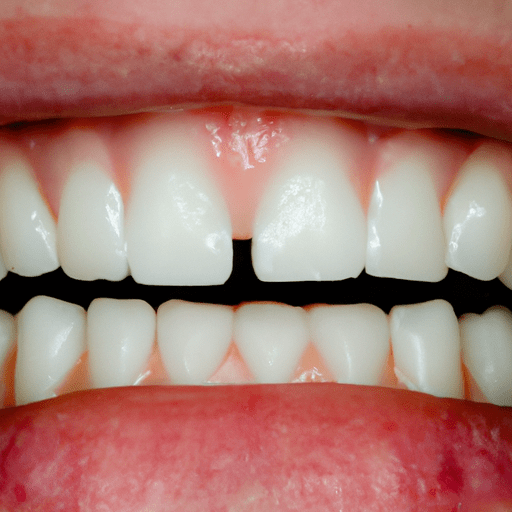If you’ve ever found yourself lying awake in bed night after night, you may have experienced the effects of sleep deprivation. This article explores the significance of sleep deprivation and its impact on your overall well-being. Lack of quality sleep can lead to a range of physical and mental health issues, including impaired cognitive function, increased risk of chronic conditions, and mood disturbances. By understanding the importance of a good night’s rest, you can take steps to prioritize your sleep and improve your overall quality of life. So, let’s dive into the fascinating world of sleep and uncover the hidden significance behind a good night’s sleep.

Understanding sleep deprivation
Definition of sleep deprivation
Sleep deprivation refers to the condition of not getting enough sleep on a regular basis. It occurs when an individual consistently fails to obtain the recommended amount of sleep needed for their age group. This can vary depending on the individual, but generally, adults are advised to get around 7-9 hours of sleep per night, while children and teenagers may require even more.
Prevalence of sleep deprivation in society
Sleep deprivation is a widespread issue in society today. Many people lead busy lives, juggling work, family, and various responsibilities, often sacrificing sleep to fit everything in. According to research, approximately 35% of adults in the United States report regularly getting less than seven hours of sleep per night, which is below the recommended amount. This alarming trend is not limited to adults; children and adolescents also experience high rates of sleep deprivation.
How often someone can experience sleep deprivation
Sleep deprivation can be a temporary or chronic condition, depending on the circumstances. Temporary sleep deprivation may occur due to a specific event or situation, such as pulling an all-nighter to meet a deadline. However, chronic sleep deprivation refers to an ongoing lack of adequate sleep over an extended period. This can be caused by a combination of factors and may have significant consequences for health and well-being.
Causes of sleep deprivation
Biological causes
Biological factors can contribute to sleep deprivation. These include underlying medical conditions such as sleep apnea, insomnia, or restless legs syndrome. These conditions can disrupt sleep patterns and prevent individuals from obtaining sufficient restorative sleep. Additionally, hormonal changes, such as those experienced during pregnancy or menopause, can also lead to sleep disturbances and, consequently, sleep deprivation.
Environmental causes
Environmental factors play a crucial role in sleep deprivation. Noise pollution, uncomfortable bedding, extreme temperatures, or even an unsuitable sleeping environment can disrupt sleep and affect the overall quality and quantity of rest obtained. Frequent disruptions from external sources can make it challenging to fall asleep and stay asleep, leading to sleep deprivation.
Behavioral causes
Certain behavioral patterns and lifestyle choices can contribute to sleep deprivation. Irregular sleep schedules, such as staying up late on weekends and then struggling to wake up early during the weekdays, can disrupt the body’s natural sleep-wake cycle. Engaging in stimulating activities close to bedtime, such as excessive screen time or consuming caffeine or alcohol, can also interfere with the ability to fall asleep and result in sleep deprivation.
Medical conditions leading to sleep deprivation
Various medical conditions can contribute to sleep deprivation. Chronic pain conditions, such as arthritis or fibromyalgia, can make it difficult to find a comfortable sleeping position and maintain uninterrupted sleep. Mental health disorders, including anxiety and depression, can also disrupt sleep patterns and lead to sleep deprivation. Additionally, certain medications or substances, such as certain antidepressants or stimulants, can interfere with sleep and contribute to sleep deprivation.
Stages of sleep and how they are affected by sleep deprivation
Detailed breakdown of sleep stages
Sleep is divided into several stages, including non-rapid eye movement (NREM) and rapid eye movement (REM) sleep. NREM sleep consists of three stages: N1, N2, and N3, also known as deep sleep. REM sleep is the stage associated with vivid dreaming. These stages alternate throughout the night in cycles, with each stage serving different functions in restoring the body and mind.
Effects of sleep deprivation on each sleep stage
Sleep deprivation can negatively impact all stages of sleep. In the initial stages, sleep onset can be delayed or fragmented, leading to difficulties falling asleep. As sleep deprivation continues, the amount of time spent in deep NREM sleep decreases, impairing the body’s ability to heal and repair. REM sleep is also affected, with a reduction in the overall duration and frequency of REM sleep cycles. As a result, sleep-deprived individuals may experience increased fatigue, decreased cognitive function, and a higher likelihood of experiencing fragmented and less restorative sleep overall.
Symptoms and signs of sleep deprivation
Physical symptoms of sleep deprivation
Sleep deprivation can manifest in various physical symptoms. These include excessive daytime sleepiness, frequent yawning, headaches, muscle aches, and an increased susceptibility to accidents or injuries. Sleep-deprived individuals may also experience changes in appetite and weight, including increased cravings for high-calorie foods and a higher risk of developing obesity.
Emotional and cognitive symptoms
Sleep deprivation can have a significant impact on emotional and cognitive functioning. Sleep-deprived individuals may experience mood swings, irritability, and difficulty managing stress. They may also have impaired concentration, decreased attention span, reduced problem-solving skills, and slower reaction times. Memory consolidation and creativity can also be compromised, affecting overall cognitive performance and productivity.
Long-term warning signs
Prolonged sleep deprivation can have severe long-term consequences. In addition to the aforementioned symptoms, chronic sleep deprivation increases the risk of developing chronic conditions such as diabetes, cardiovascular diseases, and weakened immune function. It can also contribute to the development of mental health disorders, including depression and anxiety. Additionally, long-term sleep deprivation can impair overall quality of life, relationships, and overall well-being.

Consequences of sleep deprivation
Physical health consequences
Sleep deprivation has been linked to various physical health consequences. Firstly, it can weaken the immune system’s ability to fight off infections, leading to a higher susceptibility to illnesses such as the common cold or flu. Sleep deprivation is also associated with a higher risk of developing cardiovascular diseases, including hypertension, heart disease, and stroke. Additionally, chronic sleep deprivation has been linked to an increased risk of developing obesity, diabetes, and metabolic disorders.
Mental health consequences
Sleep and mental health are closely interconnected, and sleep deprivation can have significant consequences on mental well-being. Lack of sleep can contribute to the development and exacerbation of mental health disorders, including depression, anxiety, and bipolar disorder. Sleep deprivation can also impair emotional regulation, leading to heightened emotional reactivity, difficulty coping with stress, and an increased risk of developing mood disorders.
Impact on quality of life
Sleep deprivation can have a profound impact on an individual’s quality of life. Persistent sleep deprivation can lead to decreased productivity and impaired cognitive functioning, affecting various aspects of daily life, including work or school performance. Sleep-deprived individuals may also experience difficulties in maintaining relationships due to mood disturbances and irritability. Moreover, sleep deprivation can limit an individual’s ability to engage in activities they enjoy, impacting their overall sense of fulfillment and happiness.
Sleep deprivation and its effect on societal health
Sleep deprivation not only affects individuals but also poses a significant societal health concern. Sleep-deprived individuals are more prone to accidents and injuries, increasing the risk not only for themselves but for others as well. Reduced productivity and impaired cognitive function in sleep-deprived individuals can also have economic implications for businesses and society as a whole. Additionally, sleep deprivation has been linked to an increased risk of workplace accidents and errors, further highlighting the importance of addressing this issue at a societal level.
Connection between sleep deprivation and specific health issues
Sleep deprivation and cardiovascular diseases
Sleep deprivation has been identified as a risk factor for various cardiovascular diseases. Chronic sleep deprivation can lead to elevated blood pressure, increased heart rate, and disruptions in glucose metabolism. Over time, these physiological changes can contribute to the development of conditions such as hypertension, heart disease, and stroke. Addressing sleep deprivation and promoting healthy sleep habits may help reduce the risk of cardiovascular diseases.
Sleep deprivation and immune function
Sleep plays a crucial role in strengthening the immune system, and sleep deprivation can impair immune function. Lack of sleep has been shown to decrease the production of immune cells and antibodies, compromising the body’s ability to fight off infections and viruses. Long-term sleep deprivation can lead to an increased risk of contracting common illnesses and may contribute to the development of chronic immune-related conditions.
Relationship between sleep deprivation and mental health disorders like depression and anxiety
Sleep and mental health are intricately connected, and sleep deprivation can contribute to the development and exacerbation of mental health disorders. Studies have shown a bidirectional relationship between sleep deprivation and mental health conditions such as depression and anxiety. Lack of sleep can heighten emotional reactivity, impair cognitive functioning, and disrupt the regulation of mood. Similarly, individuals with mental health disorders often experience sleep disturbances, further exacerbating their symptoms. Promoting healthy sleep habits is essential in managing and preventing mental health disorders.

Sleep deprivation in various demographic groups
Sleep deprivation in children and adolescents
Sleep deprivation is a significant concern among children and adolescents. Rapid growth and development during these stages of life require an adequate amount of quality sleep. However, factors such as increased academic demands, extracurricular activities, and the prevalence of electronic devices can disrupt sleep patterns and contribute to sleep deprivation. Chronic sleep deprivation in children and adolescents can have detrimental effects on physical and cognitive development, behavior, and academic performance.
Sleep deprivation in adults
Sleep deprivation is prevalent among adults, with many facing challenges in obtaining sufficient sleep. Factors such as work responsibilities, long commutes, and lifestyle choices can contribute to sleep deprivation. Disruptions in sleep patterns can lead to a variety of health issues, including increased risks of chronic diseases and impaired cognitive functioning. Addressing the importance of sleep and promoting healthy sleep habits among adults is crucial for overall well-being.
Sleep deprivation in the elderly
Sleep patterns tend to change as individuals age, and older adults may experience more fragmented and less restorative sleep. Age-related conditions, such as chronic pain, sleep apnea, or medications, can contribute to sleep disturbances and sleep deprivation. Older adults with sleep deprivation can experience increased risks of falls, impaired cognitive function, and a higher likelihood of developing or exacerbating chronic health conditions. Proper sleep management strategies tailored to the unique needs of the elderly population are essential for maintaining their health and well-being.
Management and treatment strategies for sleep deprivation
Lifestyle modifications
Implementing healthy sleep habits and lifestyle changes can help address sleep deprivation. Establishing a consistent sleep schedule, creating a relaxing bedtime routine, and ensuring a comfortable sleep environment are essential. Avoiding stimulants like caffeine or nicotine before bedtime and limiting screen time close to bedtime can also aid in promoting better sleep. Regular exercise and maintaining a healthy diet can have a positive impact on sleep quality and quantity.
Medication
In certain cases, medication may be prescribed to address underlying causes of sleep deprivation or to provide temporary relief. Over-the-counter or prescription sleep aids can help individuals fall asleep or stay asleep, but these should be used under the guidance of a healthcare professional. It is important to note that medication alone is not a long-term solution for sleep deprivation and should be used in conjunction with other management strategies.
Cognitive behavioral therapy for insomnia
Cognitive behavioral therapy for insomnia (CBT-I) is a structured therapeutic approach that focuses on modifying thoughts, behaviors, and lifestyle factors to improve sleep. CBT-I can help identify and address negative thoughts or behaviors that contribute to sleep deprivation. It often involves techniques such as relaxation training, sleep restriction, stimulus control, and cognitive restructuring. CBT-I has been shown to be an effective long-term treatment strategy for sleep deprivation, addressing underlying causes and promoting healthy sleep habits.
Preventive measures against sleep deprivation
Importance of good sleep hygiene
Maintaining good sleep hygiene is vital for preventing sleep deprivation. This includes establishing a consistent sleep schedule, creating a relaxing bedtime routine, and optimizing the sleep environment for comfort and relaxation. Practicing good sleep hygiene can help regulate the body’s internal clock and promote healthy sleep patterns.
Role of physical exercise in preventing sleep deprivation
Regular physical exercise has been linked to improved sleep quality and duration. Engaging in moderate-intensity aerobic exercise or other physical activities can help regulate sleep-wake cycles, reduce stress levels, and promote deeper, more restorative sleep. However, it is important to avoid exercising too close to bedtime, as it may have stimulating effects that can interfere with falling asleep.
Diet and nutrition for better sleep
Certain dietary factors can impact sleep quality. Avoiding heavy meals, caffeine, and sugary or alcoholic beverages close to bedtime can help promote better sleep. Incorporating foods rich in sleep-supportive nutrients, such as magnesium, melatonin, and tryptophan, into the diet may also aid in improving sleep quality. It is important to maintain a balanced diet that supports overall health and includes a variety of nutrients beneficial for sleep.
The future of sleep deprivation research
Current research trends
Research on sleep deprivation and its effects is a rapidly evolving field. Current studies are focusing on understanding the underlying biological mechanisms that link sleep deprivation to various health conditions, as well as investigating potential interventions and therapies to mitigate the negative consequences of sleep deprivation. Advanced technologies and techniques are being utilized to monitor sleep patterns and gather more accurate data, providing valuable insights into the impact of sleep deprivation on physical and mental health.
Emerging therapies
As the understanding of sleep deprivation deepens, emerging therapies are being explored to address the issue. These include transcranial magnetic stimulation (TMS), which uses magnetic fields to stimulate specific areas of the brain involved in sleep regulation, as well as new pharmacological approaches targeting the neural pathways involved in sleep-wake regulation. These emerging therapies have the potential to offer innovative and effective solutions to tackle sleep deprivation and its associated health consequences.
Unresolved questions about sleep deprivation
While much is known about sleep deprivation, there are still several unanswered questions in the field. Researchers continue to investigate the long-term effects of sleep deprivation on overall health, including the potential relationship between sleep deprivation and neurodegenerative diseases. Additionally, the impact of sleep deprivation on specific populations, such as shift workers or individuals with certain medical conditions, requires further exploration. The ongoing research aims to fill these knowledge gaps and provide a more comprehensive understanding of sleep deprivation and its implications.






